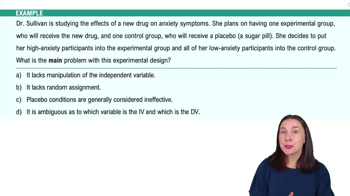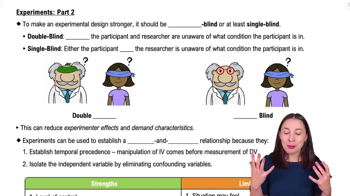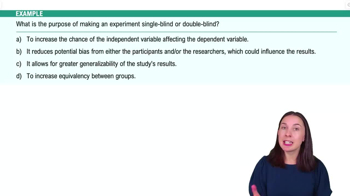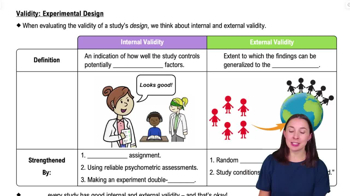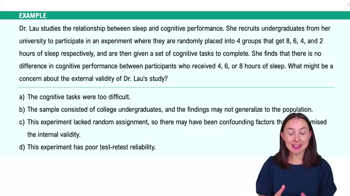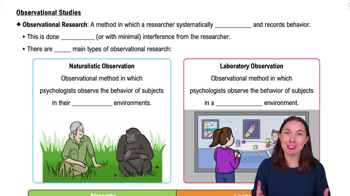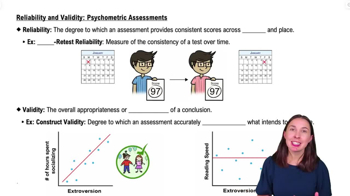Table of contents
- 1. Introduction to Psychology1h 43m
- 2. Psychology Research2h 20m
- 3. Biological Psychology2h 41m
- 4. Sensation and Perception28m
- 5. Consciousness and Sleep32m
- 6. Learning41m
- 7. Memory34m
- 8. Cognition37m
- 9. Emotion and Motivation35m
- 10. Developmental Psychology33m
- 11. Personality48m
- 12. Social Psychology41m
- 13. Stress and Health41m
- 14. Psychological Disorders44m
- 15. Treatment47m
2. Psychology Research
Intro to Research Methods
Struggling with Psychology?
Join thousands of students who trust us to help them ace their exams!Watch the first videoMultiple Choice
In the behaviorists' view, personality is simply a set of
A
traits.
B
genes.
C
habits.
D
experiences.
 Verified step by step guidance
Verified step by step guidance1
Understand the behaviorist perspective: Behaviorism focuses on observable behaviors rather than internal states like thoughts and emotions. It emphasizes the role of environmental factors in shaping behavior.
Identify the key concept: In behaviorism, personality is viewed as a collection of learned behaviors or habits that are acquired through interaction with the environment.
Differentiate between the options: Consider how each option (traits, genes, habits, experiences) aligns with the behaviorist view. Behaviorists typically do not focus on traits or genes, as these are seen as internal or biological factors.
Focus on habits: Behaviorists believe that habits are formed through conditioning processes, such as classical and operant conditioning, where behaviors are learned and reinforced over time.
Conclude with the behaviorist definition: Based on the behaviorist perspective, personality is best understood as a set of habits, which are learned responses to environmental stimuli.

 1:46m
1:46mWatch next
Master Roadmap of the Lesson with a bite sized video explanation from Hannah Gordils
Start learningRelated Videos
Related Practice










